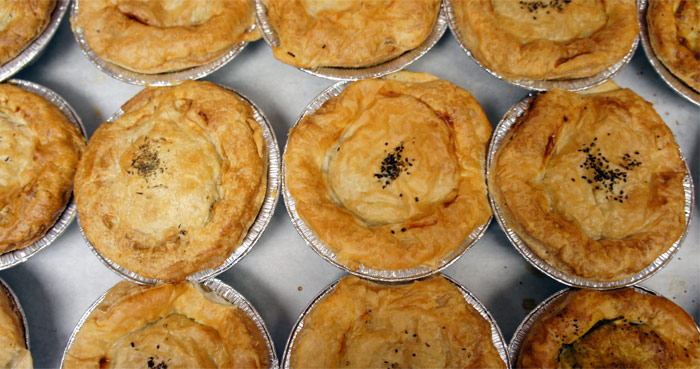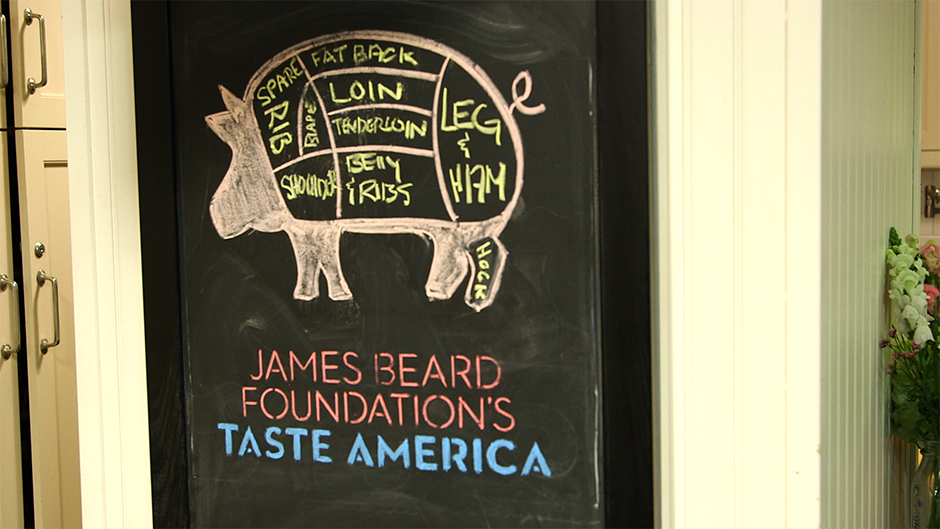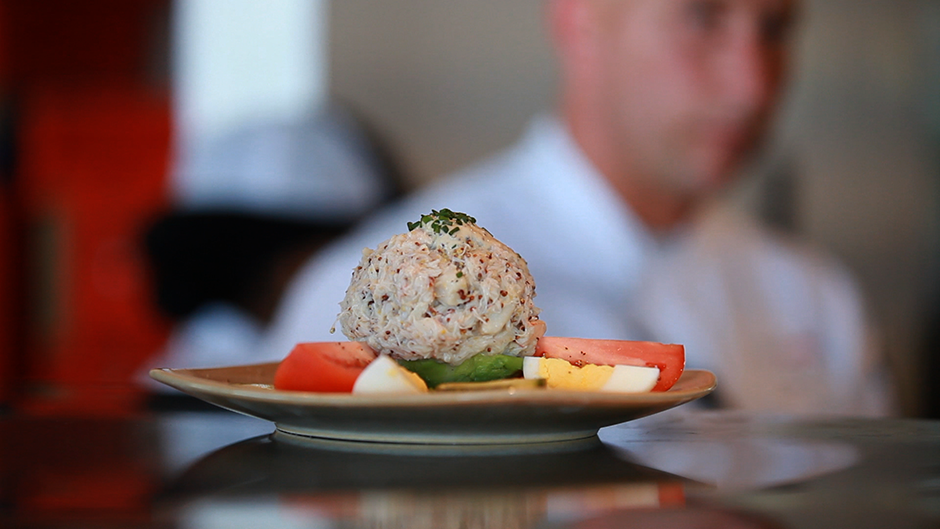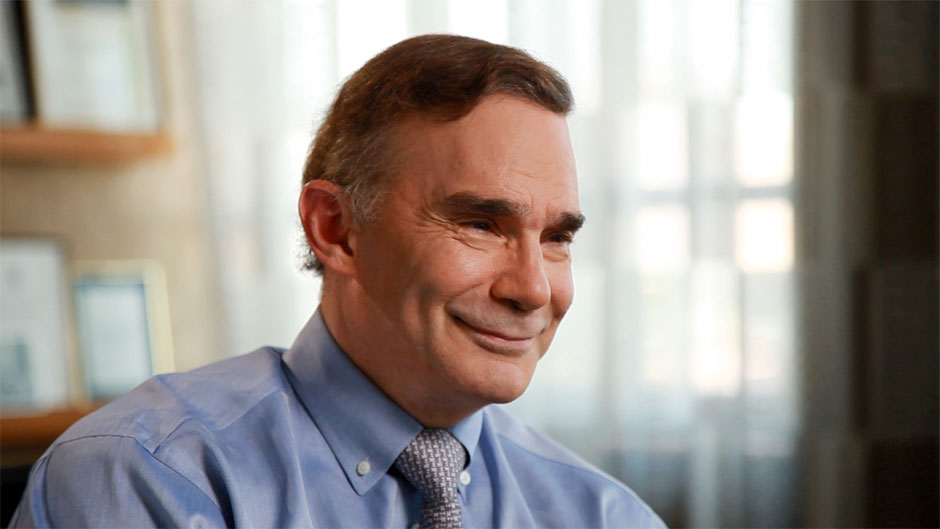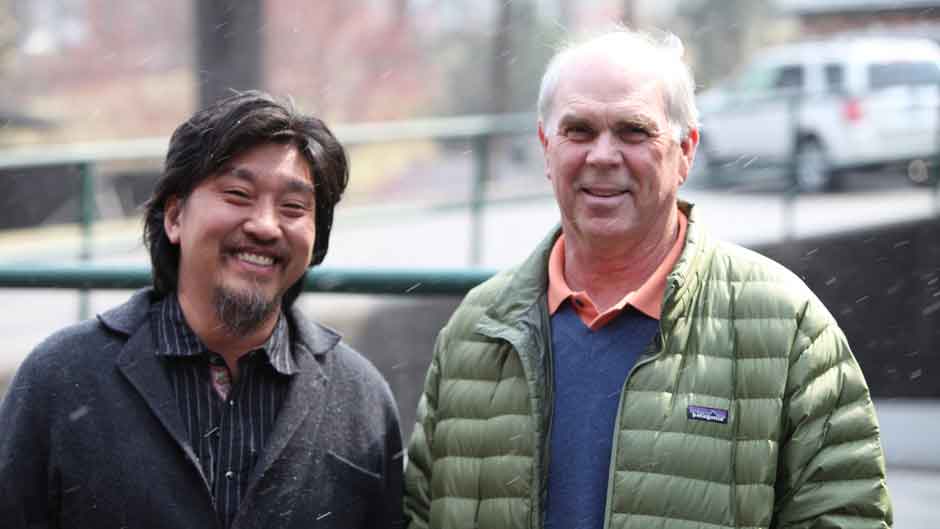How a globe-trotting Aussie won over a tough, working-class town by slinging the best damn meat pies ever.
Biting into the meat pie, Sam Jackson cocks his head and looks down at it as if it is his first. It isn’t. Far from it.
Jackson grew up eating the savory pies in Australia; in fact, each bite takes him back to grade school, where he remembers getting pies once a week at lunch. And now, he slings more Aussie pies than probably any place in America through his successful Boston-based catering business and two brick-and-mortar restaurants. And yet, on this day, he’s just another bloke enjoying the can’t-miss combination of a buttery, homemade pastry shell filled with perfectly seasoned ground beef – all 100 percent grippable with one hand.
“It’s been forever since I’ve finished a pie,” he says as he stands in the small dining room of the KO Catering and Pies East Boston shop. “I always take one bite when they come out of the oven, you know, but sometimes it’s good to stop and savor the glory of it.”
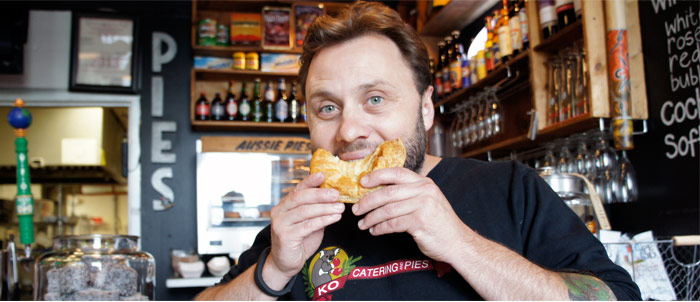
Thanks exclusively to Sam, the glory of Aussie pies have caught on in a big way in two of Boston’s settled, working-class neighborhoods — South Boston and East Boston. Launched in Southie in 2010, the original plan was to bake the pies at the shop and sell them from a food truck. But when the walk-up counter at the brick-and-mortar took off like gangbusters — he made about 50 pies that first day, which he sold in less than four hours — Jackson scrapped the food truck in favor of the shop.
Two years later, Jackson opened up shop across Boston Harbor from Southie in a working East Boston shipyard. He’s adopted more of a pub feel in Eastie, serving beers from Australia and New Zealand alongside a rotating selection of draughts from Southie’s own Harpoon Brewery. There are fish sandwiches and chickpea wraps and Jonah crab salads in Eastie, but the centerpiece of the menu has been and will always be the pie, which Jackson calls “working man’s food in a working man’s suburb.”
He has a take-it-or-leave-it attitude about his Australian-inspired menu. He wanted to sell Aussie pies, so he is doing that. If people don’t want an Aussie pie, they can grab a cup of chowder or a taco elsewhere. He had a hunch folks would “take it” more than they’d “leave it,” though, and he was right. After all, Boston’s the kind of town where people reward the places that do something — even just one thing — well. Given that many an Aussie has grumbled that they had to come to Boston to get the best meat pie anywhere, KO is obviously doing what it does well.
“You gotta care about what you do every day, and that will get you through,” says Jackson, who is both serious and jovial. “Give a shit. Care. That will rub off.”

At 35, Sam Jackson has cooked in more places than most people will live in a lifetime.
His start came in Wollogong, an industry town about 55 miles south of Sydney. He had a “pretty regular” childhood full of surfing, school, and family, and his earliest food memories were of Sunday night dinners at his Nana’s house, which consisted of roasted chicken, lamb, or pork with all the trimmings.
Jackson’s first food job came at 17, following his graduation from high school and an extended surf trip up Australia’s East Coast. His friend’s brother, who owned a popular Italian restaurant in Sydney, was looking for a dishwasher in the rush leading up to Christmas. Wanting to learn more about the culinary side of the business, he enrolled in a four-year culinary program at the local state-run trade school and was eventually granted an apprenticeship with the chef, in which he was paid $140 a week for hard work and long hours. It was worth it.
The head chef was willing to teach me whatever I wanted, Sam remembers. I was young and eager enough, I might as well do it.
He took up a second cooking job during that time as well — at a seafood restaurant on Bondi Beach, which is where he was when his shift ended at the Italian restaurant. Despite the fact that his days began at 4:30 a.m. and ended back in his Wollogong bed at midnight, he says these were good days, fun days, that lay the groundwork for a life in food. Turning 18 (the legal drinking age) under Sydney’s bright lights opened his eyes “to a whole different world.”

For the next few years, Jackson would work his way through the Sydney food scene, apprenticing with a prestigious restaurant (Catalina Rose Bay) and a startup (The Olympic Hotel), with a stint in between catering for musicians like U2 and Elton John. At The Olympic Hotel, Chef Mark Jensen — who at 32 had quit his job as a hairdresser to go into the apprenticeship to become a chef — took Jackson under his wing. Jackson shared with Jensen his dream to eventually travel and cook in Europe, and Jensen promised to help him get there.
I had a skill set that you learn from all these different places, but it was a pretty rough skill set because you’d learn everything but it was a bit of a mess, I guess, with what to do with all the skills, says Jackson, who adds that Jensen remains his best mentor. He was able to refine all those skills I had.
In June 2000, he’d take those skills to London, where he got a catering gig through a temp agency. This period was formative, Jackson says, because it became a blueprint for how he operates the catering side of KO today.
That winter, he accepted a cooking job at a 21-person ski chalet in the French Alps village of Maribel. He hadn’t seen anything like the Alps, and the snowboarding and cross-cultural business experience was unmatched anywhere he’s lived.
At the end of the winter, Jackson moved to Edinburgh, Scotland, to work with acclaimed English chef Gary Rhodes, but he was barely into that new gig when he received an email from a family member who had visited the French chalet a few years earlier. They wanted Jackson to come and cook for them on their yacht in the Caribbean. He passed his “interview” — a six-course meal for the couple and their friends at their home in Birmingham, England — with flying colors, and after Jackson returned from a backpacking trip in Italy he’d planned months before, he was on a plane to Trinidad to meet the couple on their yacht.
Their first stop was a kitchen supply store to outfit the yacht with anything Jackson could possibly need. “We spent a stupid amount of money, and I was like, man, this is crazy. I’ve never seen anything so excessive when it comes to spending money,” he says. “So began the life of working on yachts.”

He’d cook for that couple for a year as they explored every island big and small in the southern Caribbean, discovering that “the only thing you can’t say is ‘no’” when cooking for the super wealthy on luxury yachts. He’d wrap up a year with the English family and put in another year on a sailboat, which traversed the Caribbean in the winter and the Mediterranean — spots like Genoa, Antibes, Croatia — in the summer.
Then a friend of Jackson’s called with an offer to help him open a restaurant in the French Alps, which he took, and enjoyed. A few months after arriving, however, in early 2004, the apartment Jackson was sharing with a Swedish couple caught fire and was destroyed, along with most of his possessions. He lost souvenirs and photos from his travels around the world, and, worst of all, books of recipes he’d collected. Everything was different now, and he needed a change of scenery — again.
An American family, based in Boston, hired Jackson to cook for them on their family trips. He’d cruise and cook from New England to islands in the Caribbean, to Croatia, and on to Barcelona. In total, Jackson sailed across the Atlantic Ocean twice with the family, dropping anchor in the best parts of the best cities in the world. After three years, though, life at sea was beginning to take its toll.
It’s a fun life, but ultimately you don’t have any control over it, he remembers. I can’t even begin to think about how many weddings I was like, ‘Yeah, I’ll be able to come,’ and then it’s ‘Sorry, boss is coming. I can’t leave. ’ You start to lose grip on your own life. I was ready for some land.
So in 2007, Jackson moved to Boston. Sam linked up with a wealthy business partner, and plans began to solidify for the creation of a boutique grocery store in South Boston which would feature seasonal produce and Jackson teaching shoppers how to cook with it. But after almost three years, those plans had not yet become reality, and Jackson was antsy. And bored.
“I was making OK money, but I wasn’t being challenged,” he says. “I was reminded of my friend Mark, the hairdresser, who wasn’t being challenged and said he was going to push that aside and start cooking. I thought if he could do it, I could do it.”
Food trucks were beginning to pop up in various places around Boston, so Jackson brought a new idea to his business partner — start a food truck that sells Aussie pies. The business partner didn’t budge from the original plan, however, and when Jackson submitted his resignation, the angry partner retaliated by immediately withdrawing his sponsorship of the Aussie’s visa.
This sent Jackson scrambling to sort out his legal status. He would need to have the newly established KO Catering and Pies serve as his sponsor, so Jackson completed the necessary steps with immigration and was allowed to return to Boston and legally “jump gung-ho” into KO.
Three years later, KO Catering and Pies is thriving, and Jackson has now lived in Boston longer (six years in total) than anywhere he’s lived since Wollagong. And what of the boutique grocery in Southie?
“It’s still a vacant shell of a building,” Jackson says, with just a twinge of joy in his voice.
Stroll a few hundred yards from KO Pies’ front door in East Boston, and you’re overlooking Boston Harbor, gazing across at the exact spot where a handful of rebel colonists famously turned a patch of water into iced tea 240 years ago.
Pan your eyes to the West, and though dwarfed by the skyscrapers of Boston’s financial district, there’s the top of the Old State House, the first seat of government in the newly formed Massachusetts Bay Colony. Further northwest still, the white spire of Old North Church, made famous by Paul Revere’s ride, the unsinkable U.S.S. Constitution, and the monument marking the Battle of Bunker Hill, a turning point in the colonists’ war for freedom from British oppression.
On its face, a restaurant serving Australia-inspired comfort food seems like a strange fit against the backdrop of all this Americana. And Sam Jackson is something of a fish out of water.
But Jackson’s is the American story. It’s quite fitting that the native Aussie opened his second location just feet from the old East Boston Immigration station, the spot where, for nearly a century after America earned its freedom, tens of thousands of sojourners first stopped in the land of opportunity. Many of these new Americans quickly opened restaurants to serve the various tastes of their homelands to fellow immigrants and native Bostonians alike. Jackson is merely part of the modern wave of immigrants doing exactly the same thing.
Other countries — even Australia — often look askew at things that are different, but not America. Here, he says, people don’t really give a shit what you wear, what music you listen to, or what you sell. And with food, if it’s good, Americans reward that.
There are differences, of course, between cooking for Aussies and cooking for Americans — both of which he gets to do at KO. For one, Aussies don’t tip much, if at all, because the practice is not customary back home. This frustrates Jackson’s front-of-house staff, he says, but he chalks it up to Aussies feeling like they’re at home when they come into the shop. Aussies are also much more to-the-point about what they like and dislike. He recalls a time in the Southie shop when an Aussie complained loudly to him about the price of the mushy peas, purchased them, and told him they were the best mushy peas he’d ever eaten.
“Americans, used to being given endless choices, always want to swap this item for that one or get their salad dressing on the side,” Jackson says. “We’re not your personal chefs,” he says on behalf of restaurant cooks everywhere. “We’ve put a lot of thought and energy into the menu items.”
Point taken.
Boston is a city that can take itself too seriously at times, where commuters avoid eye contact on the subway and sidewalk, and neighbors scream at each other over parking spaces. KO is something of an oasis in the madness, reminding Bostonians to slow down, chill out, and eat a meat pie. We Yanks need what Sam Jackson is selling.
Article illustrations created by Joel Kimmel.

